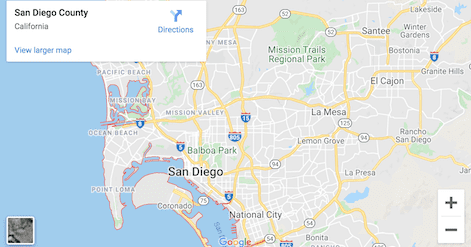So, when it's time to move on to new appliances or HVAC's, find out how to recycle your old ones so they won't end up in a landfill where they can cause serious problems for the environment.
How to recycle used appliances
Parting with your time-worn appliances or HVAC's—whether it’s your refrigerator, air conditioner, furnace, dishwasher, washing machine, stove, or dryer—could mean giving them away or recycling them at a recycling center. Here are some options to consider to find a second life for old appliances or HVAC's:
Donate them to an organization. If you’re replacing an appliance or HVAC but it still works, consider donating your functional units to a charity like Habitat for Humanity, Goodwill, or the Salvation Army.
Find a new owner in your community. If your local charity doesn’t accept old appliances, there may be someone in your neighborhood or community willing to take it off your hands. Try using a service like craigslist or Freecycle to offer your functional appliance to those willing to come and get it from you.
Have your appliance or HVAC picked up by the delivery service. Many appliance and HVAC dealers will pick-up your old appliance or HVAC when they deliver your new item. But be sure to ask whether they have an appliance or HVAC recycling program (you don’t want them sending it to the landfill).
Recycle your appliance or HVAC at a recycling center.
To do so:
Check the rules and regulations regarding appliance and HVAC recycling in your local municipality, which you should be able to find using either the National Recycling Coalition’s State Recycling Resources or the Association of State and Territorial Solid Waste Management Office's (ASTSWMO) State Agency Waste Management Program Links. Your city or town may have an appliance and HVAC round-up day or a location where you can drop off used appliances.
Check out Earth 911's directory of companies and recycling facilities that accept “Non-Reusable Large Appliances” in your area. Or, you may be able to find an appliance or HVAC recycling facility using the Steel Recycling Institute’s recycling locator.
Prep the old appliance or HVAC for recycling, according to local regulations. For example, if you're participating in your local municipality's curbside appliance or HVAC recycling program, be sure to remove the doors from old appliances to prevent curious children or animals from climbing inside and getting stuck.
Pay particular attention to how refrigerators, freezers, and air conditioners are recycled. The US Environmental Protection Agency (EPA) requires that refrigerants be recovered. If you need extra assistance finding someone to recover your refrigerator for you, or if you see someone improperly disposing of one, please contact the Stratospheric Ozone Hotline at 1-800-296-1996.
Properly disposing of appliances helps you go green because…
It keeps harmful chemicals, such as CFCs, HCFCs, HFCs, and mercury, out the atmosphere and landfills.
It recovers useful resources for reuse, such as steel, plastic, glass, and oil, meaning that fewer virgin resources will be required to create new products.
It saves energy: recycling existing materials to create new products uses less energy than making new products from virgin materials.
Most household appliances—nearly 84 percent in the US, in fact—are now recycled since state and municipal disposal bans have become effective.[1] The plastic, steel, glass, refrigerant, oil, and blowing agent found in old appliances can be salvaged and recycled for use in new products. By weight, most appliances are 75 percent steel. The Steel Recycling Institute saves the equivalent of 18 million households worth of electric energy every year by recycling steel.[2]
Refrigerators, air conditioners, and freezers made before 1995 contain chlorofluorocarbons (CFCs) and most air conditioners produced after 1995 contain hydrochlorofluorocarbons (HCFCs). Both CFCs and HCFCs harm Earth’s ozone layer. Refrigerators, freezers, and some air conditioners manufactured since 1995 contain hydrofluorocarbons (HFCs), which are not ozone-depleters, but which still require careful disposal. Additional hazardous materials contained in some appliances include oil, polychlorinated biphenyls (PCBs), and mercury. These materials can have a substantail negative impact on the air, water, and soil if not disposed of properly.
Fines for improper disposal
HCFCs in old refrigerated appliances (air conditioners, refrigerators, freezers, etc.) must be recovered according to federal law. The EPA can impose fines up to $25,000 for failure to comply with this regulation.
Glossary
Сhlorofluorocarbon (CFC): A haloalkane compound containing chlorine, primarily used as a refrigerant. When this gaseous compound reaches the stratosphere, UV light liberates the chlorine from the molecule and it is then capable of breaking down up to 100,000 ozone molecules (O3) into O + O2.
hydrochlorofluorocarbon (HCFC): A similar haloalkane compound where not all the hydrogen atoms are replaced by a halogen atom. These are typically used to substitute for CFCs, as the ozone-depleting capacity of these compounds is 10 percent less than that of CFCs.
hydrofluorocarbon (HFC): A refrigerant used in refrigerators, freezers, and air conditioners which does not deplete the ozone layer but still requires careful disposal.
ozone layer: Part of the earth’s atmosphere, the ozone layer acts as a blanket that protects the earth from damaging UV radiation, which has been linked to cancer.
mercury: An environmental toxin that can accumulate in tissue and may cause brain and kidney damage, especially in children.
PCBs, or polychlorinated biphenyls: Chemicals that are highly-toxic, persistent organic pollutants that contaminate waterways and accumulate in fish populations, working their way into the human food chain.
External links
US Environmental Protection Agency - Safe Disposal of Refrigerated Household Appliances: Frequently Asked Questions (FAQ) - Refrigerant
Share the Air
Footnotes
Consumer Reports GreenerChoices - Refrigerators: Recycling & disposal
The Steel Recycling Institute - Recycling Steel Appliances: Environmental benefits


